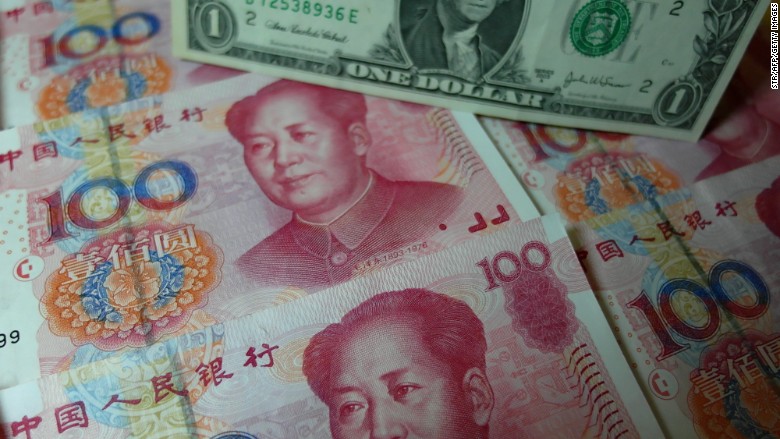
China has stopped bleeding cash -- at least, for now.
The country's foreign exchange reserves rose by roughly $10 billion in March to $3.21 trillion, the first monthly increase since October, according to central bank data.
The modest upward tick indicates that money is no longer flooding out of China at the torrid pace seen in late 2015 and early 2016.
Investors had been sending huge sums out of China amid worries over a slowing economy, stock market turmoil and a weakening yuan. The capital outflows increased downward pressure on the yuan, a trend Beijing appeared to counter by using its reserves of foreign currencies to buy yuan.
It's a strategy many countries use, but it can deplete a central bank's "rainy day" reserve fund. Analysts had been warning that Beijing couldn't keep using this approach indefinitely.
Related: China credit rating outlook cut to negative over debt
Now, it appears that investor concerns have eased.
"Receding fears over a sharp [yuan] devaluation, along with favorable exchange rate movements, has helped end the recent string of declines in the value of China's foreign exchange reserves," said Julian Evans-Pritchard of Capital Economics.
Some of the capital outflows may have abated during the Lunar New Year holiday, but the fact that they haven't resumed suggests "concerns about the possibility of a large scale depreciation [are] now fading and outflow pressures easing as a result," he said.
However, analysts warn that currency dynamics could shift quickly in China, sending the yuan into another downward slide that prompts further capital outflow and a depletion of foreign exchange reserves.


